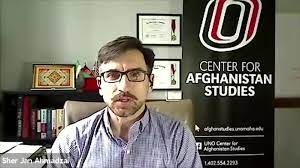Levi-Strauss Structuralism vs. Ethnocentric Human Rights
Embracing Cultural Relativism: Lessons from Lévi-Strauss
Between the 1960s and 1980s, Claude Lévi-Strauss and his philosophy of anthropological structuralism profoundly influenced those of us studying political and social sciences. Lévi-Strauss became a revered figure among progressive leftists for criticizing Western ethnocentrism and colonialism. In our youthful idealism, many, including myself, adopted his theories with a radical fervor.
Lévi-Strauss’s legacy endures in contemporary discussions about identity, particularly regarding individuals with disabilities. The term “handicapped” has evolved mainly into “differently abled,” reflecting a shift toward cultural relativism. He argued that societies express their cultures uniquely while sharing a common ethical and genetic foundation. In this view, some nations might be characterized as “differently democratic” or “differently totalitarian,” suggesting that notions of freedom and oppression might vary significantly across cultures.
However, by the late 1980s, I began to voice concerns about the superficial application of Lévi-Strauss’s ideas. His profound insights were being diluted and reduced to a simplistic framework. This misinterpretation provided a false basis for the left to criticize Eurocentrism while fostering a misleading sense of tolerance. Conversely, the right exploited it to promote Western superiority with outright aggression and intolerance.
After 1990, Lévi-Strauss’s theories fell out of favor in international discourse, supplanted by a dogmatic globalism that united the left and right in their crudeness and opportunism. The emphasis shifted toward human rights, defined solely by Western standards, disregarding the diverse ways these concepts manifest within different cultures.
Recognizing this trend in the late 1980s, I witnessed the emergence of a superficial interpretation of structuralism. Today, we risk falling into another extreme: imposing a singular Western human rights framework without embracing varied interpretations. A return to genuine cultural relativism that respects personal and political differences is urgently needed.
Just as Lévi-Strauss urged us to look beyond surface meanings and consider the structures shaping our cultures, the shift from “handicapped” to “differently abled” represents a broader understanding of identity. It invites us to analyze our language and, by extension, how we conceptualize humanity. Ultimately, Lévi-Strauss’s structuralism and the evolution of inclusive language challenge conventional perspectives. They encourage us to appreciate the complexities of the human experience, fostering a more nuanced appreciation of diversity across cultures and abilities.
P. S.: I acknowledge that my thoughts on this topic are a starting point, requiring more profound analysis and insights. Nevertheless, my political awareness and international experiences compel me to advocate for critical reflection on the current neo-ethnocentrism or neo-eurocentrism. This mindset, wrapped in human rights rhetoric, inadvertently perpetuates the exclusion of “alternative thinking.”
Lévi-Strauss’s legacy endures in contemporary discussions about identity, particularly regarding individuals with disabilities. The term “handicapped” has evolved mainly into “differently abled,” reflecting a shift toward cultural relativism. He argued that societies express their cultures uniquely while sharing a common ethical and genetic foundation. In this view, some nations might be characterized as “differently democratic” or “differently totalitarian,” suggesting that notions of freedom and oppression might vary significantly across cultures.
However, by the late 1980s, I began to voice concerns about the superficial application of Lévi-Strauss’s ideas. His profound insights were being diluted and reduced to a simplistic framework. This misinterpretation provided a false basis for the left to criticize Eurocentrism while fostering a misleading sense of tolerance. Conversely, the right exploited it to promote Western superiority with outright aggression and intolerance.
After 1990, Lévi-Strauss’s theories fell out of favor in international discourse, supplanted by a dogmatic globalism that united the left and right in their crudeness and opportunism. The emphasis shifted toward human rights, defined solely by Western standards, disregarding the diverse ways these concepts manifest within different cultures.
Recognizing this trend in the late 1980s, I witnessed the emergence of a superficial interpretation of structuralism. Today, we risk falling into another extreme: imposing a singular Western human rights framework without embracing varied interpretations. A return to genuine cultural relativism that respects personal and political differences is urgently needed.
Just as Lévi-Strauss urged us to look beyond surface meanings and consider the structures shaping our cultures, the shift from “handicapped” to “differently abled” represents a broader understanding of identity. It invites us to analyze our language and, by extension, how we conceptualize humanity. Ultimately, Lévi-Strauss’s structuralism and the evolution of inclusive language challenge conventional perspectives. They encourage us to appreciate the complexities of the human experience, fostering a more nuanced appreciation of diversity across cultures and abilities.
P. S.: I acknowledge that my thoughts on this topic are a starting point, requiring more profound analysis and insights. Nevertheless, my political awareness and international experiences compel me to advocate for critical reflection on the current neo-ethnocentrism or neo-eurocentrism. This mindset, wrapped in human rights rhetoric, inadvertently perpetuates the exclusion of “alternative thinking.”



